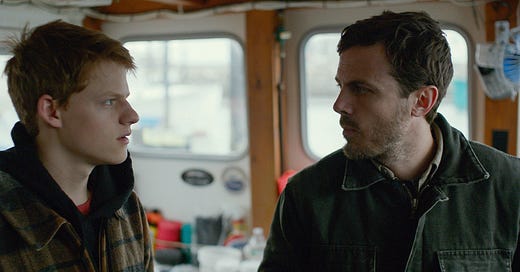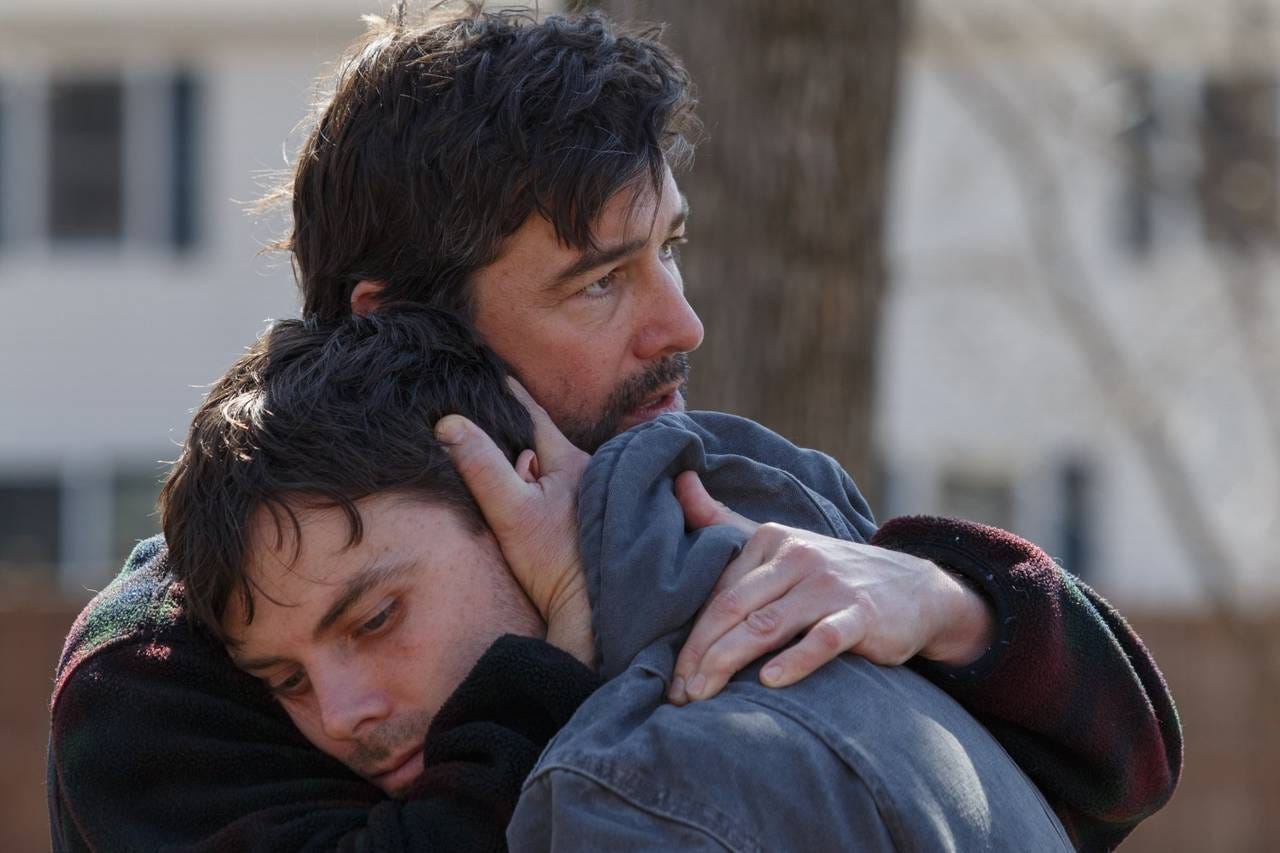I’ve been writing this affirmation in my journal every night for at least two years now to turn its wisdom into second nature: Every thought, feeling, sensation, and experience comes and goes like the ocean’s waves. This too shall pass. During my hardest moments, visualizing this imagery of the ebbs and flows of the tides really helps.
This seaside visual is uncoincidentally the first thing the viewer sees in Kenneth Lonergan’s 2016 film Manchester by the Sea. The film follows the story of a depressed and grieving janitor, Lee Chandler (Casey Affleck), living and working in Quincy, Massachusetts, which is about twenty-five or so minutes from my hometown. Lee becomes the legal guardian of his nephew Patrick (Lucas Hedges) after the passing of his brother Joe (Kyle Chandler). He then must move to Manchester-by-the-Sea, at least temporarily during that winter, to make funeral arrangements and care for Patrick. It is here where he runs into his ex-wife, Randi (Michelle Williams), and other painful reminders of his past, including an existential loss a few years prior
Although the titular location is a little over an hour from where I was born and raised, it captures the mundane beauty of living in a small town in New England like no other film, much to the credit of cinematographer Jody Lee Lipes. During some stretches of winters here, the days are as dim as the nights, bending the parameters of how much darkness a single day can stand to carry. Howling wind might sweep down the streets and make the earth our lives are grounded on quiver. Lakes and ponds that glistened under the summer sunshine not too long ago might go stagnant or frozen. In the dead of winter, the skin between my thumb and index finger always dries out, rough as sandpaper. Snow banks pile up at the edges of sidewalks before going gray and dying. I might daydream about spending my days writing in Cork—and I’ll get there again—but I know I wouldn’t want it any other way when I see the bare trees in my yard stand tall against falling snow, the ends of their branches budding with promises yet to be actualized.
Combining the authenticity of the setting with its familiar sense of humor, I still can’t say Manchester by the Sea feels like home. The film feels more like returning to a place I once called home—the house I lived in for the first seven years of my life or my junior and senior year dorm rooms where I experienced some of my happiest memories yet—and wishing I could spend one more night.
This is probably why I decided to watch the film for the first time as a lonely college freshman. By the time Lesley Barber’s hauntingly beautiful “Manchester by the Sea Chorale” played over the end credits, I knew I had found a new favorite movie—not just because it patched up my homesickness. I was eighteen, still caught up in guilt from something that happened to a friend two years prior; it could be best described as life-disrupting. I convinced myself I could see the blame in her family’s eyes when we encountered each other at cross-country meets, at the YMCA, or at the grocery store. Of course, I blamed myself more than they ever could, for a very long time after. It wasn’t healthy for my developing brain at age sixteen to carry around that much guilt, all of it unnecessary. Now and then, I still have nightmares where I am responsible for a living being and fail horribly, the results catastrophic.
I wish the film’s story made me realize how futile all that suffering I put myself through was, but it didn’t; that could only be healed by time passing. By that point, I convinced myself that everyone was sick of hearing about it, and I didn’t want to talk about it anymore either. The guilt that undergirds Manchester by the Sea resonated and provided a place to finally let some of it go. Though the film is beyond devastating, watching it alone in my dorm room on a winter night during the school week more than five years ago, in a strange way, helped me move closer to peace. Generally, life is only getting better as I grow older; I now see that the things my family and friends tried to tell me back then were absolutely right—it really was not my fault. And I know I’m not alone in these feelings.
When writing about the film, it feels important to note that Lonergan said to Rolling Stone about the film in 2016, “Some people can’t get over something major that’s happened to them at all; why can’t they have a movie too? Why can’t there be one film about somebody who doesn’t magically bounce back?” While appreciating the writer-director’s intentions, I believe the film is simultaneously life-affirming. Being tasked with caring for Patrick transforms Lee. He still might want to die a lot of the time, but by the film’s end, he is no longer just living like he’s waiting to die. In death, Joe gave Lee a gift by making him Patrick’s guardian, challenging him to open himself back up to moments of happiness and love again. Lee and Randi both will never be okay; as Randi said to him, her heart will always be broken. Pain comes and goes like the tides, but we weather the changes like stones and stay together on the shoreline.







